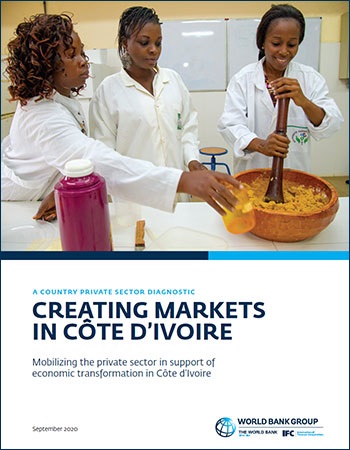
Mobilizing the private sector in support of economic transformation in Côte d’Ivoire
Since the end of the political crisis in 2011, Côte d'Ivoire has experienced a period of exceptional economic growth, with real GDP growth averaging 8 percent annually since 2012 – one of the highest growth rates globally. This robust growth performance, driven by strong agricultural production (and nascent diversification away from cocoa), macroeconomic stability and a positive reform momentum to reduce the infrastructure gap (including via PPPs), rests on fragile foundations. The Ivorian economy remains essentially vulnerable to commodity price volatility, and the level of private investment (foreign and domestic) is below that in peer countries. With a weak manufacturing base and lagging human development indicators, the country can do more to foster an inclusive, private sector-driven growth model. The global crisis sparked by the COVID-19 pandemic, in early March 2020, added a new challenge to the country’s economic and social development – just when the country’s growth performance was delivering on the promise of poverty reduction and job creation.
This Country Private Sector Diagnostic (CPSD) therefore investigates where opportunities exist for the private sector to make a more decisive contribution to Côte d’Ivoire’s development trajectory – with a focus on agriculture (cashew, cotton, horticulture, rubber and palm oil), agro-processing and related manufacturing industries. In order to unleash the potential for catalytic private investments, the CPSD set forth a number of recommendations to improve the business environment and tackle informality, increase access to credit for small businesses and farmers, modernize port and logistics infrastructure, develop digital connectivity and expand the available skills base.
